Meet the 72-YO Ex-Army Man Working Tirelessly to Solve Pune’s Water Woes
“I don’t want rainwater harvesting to be a novel initiative by a few but a regular and common practice that touches each corner of the country", says this incredible man.
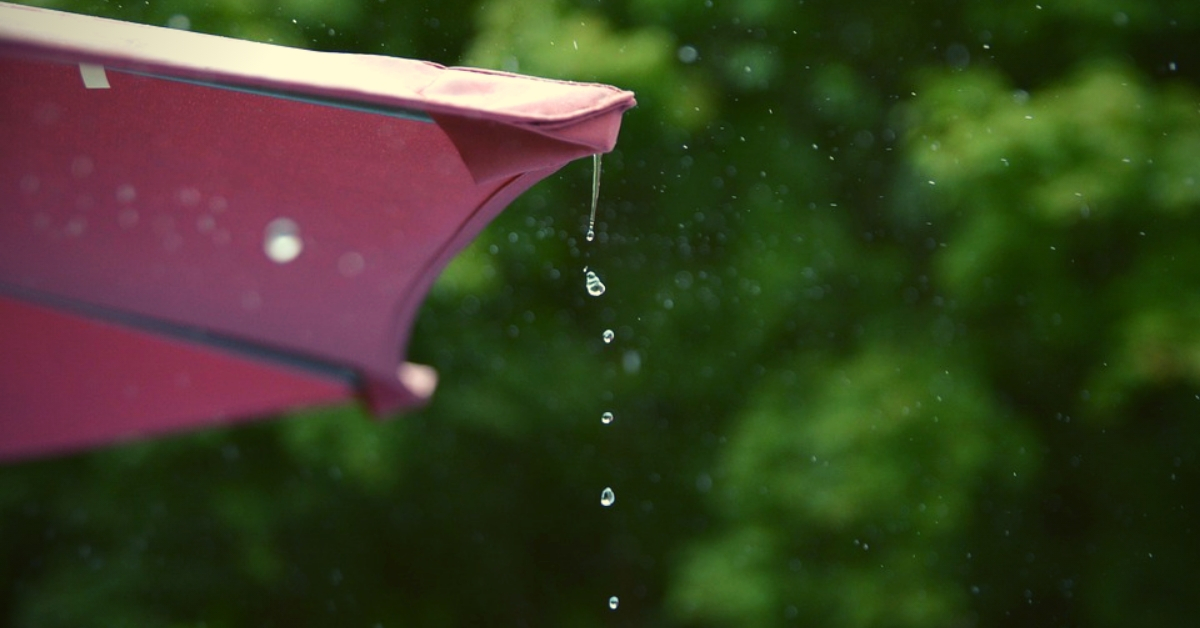
“Water is the most violated natural resource. If things continue to go the way they are, it won’t be long before taps in India run completely dry, and our cities turn worse than Cape town,” remarks Pune’s noted water conservationist and a retired army person, Col Shashikant Dalvi who has spent 16 years of his life educating about and initiating Rain Water Harvesting [RWH] systems across his city, Pune.
His fear is not unfounded.
Central Ground Water Board (CGWB), under the Ministry of Water Resources, published a report in 2018 which found that the groundwater level in India has depleted by 61 per cent from 2007 to 2017.
And, according to the 72-year-old, one of the primary reasons behind the water crisis is the decrease in percolation rate owing to rising urbanisation. Speaking to The Better India (TBI) Col. Dalvi says, “The rising population in most metro cities has pushed concretisation several notches higher than usual. As we are cutting more and more trees and building more concrete roads, the surface of the ground is becoming less absorbent, causing the percolation rate of rainwater to go down. This, in turn, is drying up the bore-wells and thus creating the water crisis,” says Col. Dalvi.
This realisation dawned when he moved to Pune after retirement.
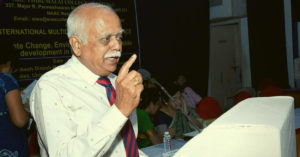
Viman Nagar area was a fairly new locality when Col Dalvi bought a flat in a housing complex there in 2002. It did not take long for him to realise that beneath all the modern amenities persisted severe water problems. To satisfy the needs of 57 flats in the complex, they had to get three big water tankers despite utilising the corporation supply every day which cost them an extra amount of Rs 25,000 per month.
“The high expenditure soon became a concern, and I began to find ways to combat. That was when I remembered from experience of the army days, how rural families in Rajasthan, sustainably conserved water through a simpler form of RWH. Thus I decided to implement it here on a large scale,” shared the expert.
This prompted him to start a rain-water harvesting consultancy, Parjanya, in March 2002, thus ushering a tide of change against the water shortage in the city.
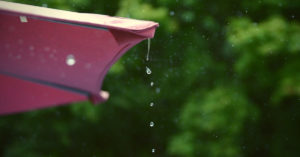
“Water has been exploited for decades and is left in a pitiful condition. But rainwater harvesting (RWH) could be one of the few ways of restoration, and when I realised it, I began researching and working towards it. RWH is a silver lining, and we must do our best to use it to its best potential.”
With his relentless efforts, the housing society—the Lunkad Greenland 2 CHS—soon emerged as an example for the rest of the city and the state. The residents of the society installed a rooftop RWH system in a 12,000 sq feet area which began to yield 9 lac litres of water a year.
“In a year we became completely tanker free, as well as the first multi-storey housing society in the state to have such a system. Owing to this the water yield from our borewell increased from half an hour to almost 9 hours a day. And, what makes RWH even better is its cost-effectiveness,” said Col Dalvi.
The rooftop installment cost the society Rs 52,000.
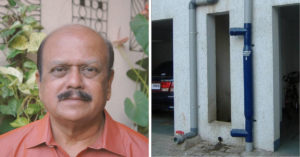
As per Col Dalvi, RWH is a one-time investment, and we can reap its benefits for decades with minimal maintenance. And in return, it can save from 30 to 50 per cent treated drinking water in a household, and 80 per cent in a large commercial building.
Another resident of the society, 46-year-old Rajeev Singh, added, “It’s fortunate to be living in a society which is completely tankerless, especially in Viman Nagar, which is known for water shortage. While other societies here spent lakhs on tankers, we reap the benefits of RWH while positively contributing to the environment. I have another flat in Wagholi area and the regular water woes there make me realise how relieved I am to be staying here.”
The success of Parjanya’s RWH idea with the residential society garnered widespread interest and praise. In addition to many engineers, even National Water Academy, Pune included a visit to the society as part of their course syllabus to study the functioning of this project.
The organisation, with the help of several governmental and private agencies, has been reaching out to several institutes to spread awareness. According to Col Dalvi, one of the major challenges was changing public perception regarding water conservation.
“It is comparatively easy to educate the youth as they are not conditioned as the adults. The dependency on water tankers is so ingrained in most of us that thinking of sustainable alternatives is still farfetched,” added Col Dalvi.
Since 2003, he has initiated almost 650 projects across the country, including hospitals, colleges, schools, multi-stories complexes, industries, and government buildings among others.
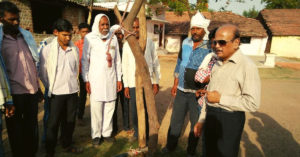
Recently, he completed RWH campaigns and implementation in 100 villages of Madhya Pradesh and has begun work in Maharashtra’s Beed district.
What started as an initiative of an informed and socially responsible senior citizen has now become a state-wide movement offering a drying state a better tomorrow.
“I don’t want RWH to be a novel initiative by a few but a regular and common practice that touches each corner of the country. Only then can we bring back our natural resource to its original self and secure the precious future for our children!” he concludes.
(Edited by Saiqua Sultan)
Like this story? Or have something to share?
Write to us: [email protected]
Connect with us on Facebook and Twitter.
If you found our stories insightful, informative, or even just enjoyable, we invite you to consider making a voluntary payment to support the work we do at The Better India. Your contribution helps us continue producing quality content that educates, inspires, and drives positive change.
Choose one of the payment options below for your contribution-
By paying for the stories you value, you directly contribute to sustaining our efforts focused on making a difference in the world. Together, let’s ensure that impactful stories continue to be told and shared, enriching lives and communities alike.
Thank you for your support. Here are some frequently asked questions you might find helpful to know why you are contributing?


This story made me
-
97
-
121
-
89
-
167











